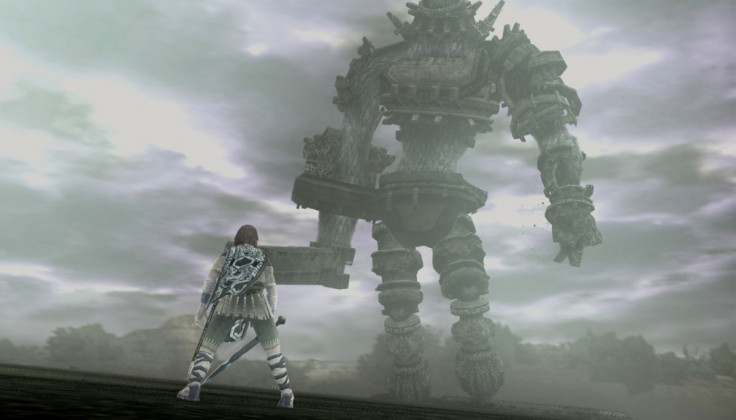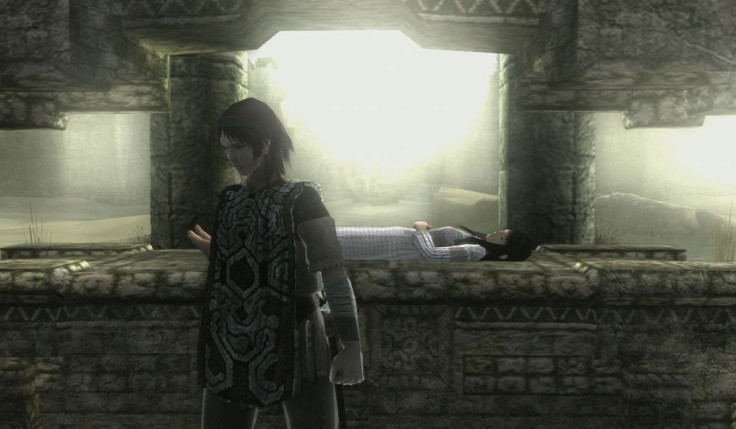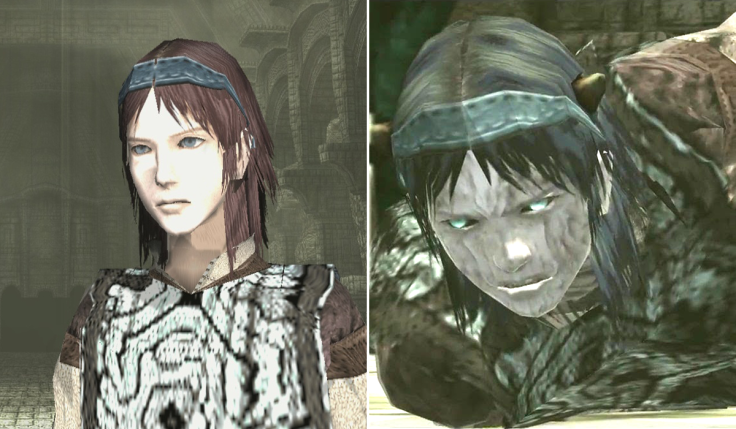Ten years on, Team Ico's Shadow Of The Colossus is a powerful take on video game sexism

Video games and video game writing are spoiled not only by an absence of women, but an abundance of men. The male power fantasy, whereby a man overcomes spectacular odds to save the world and become a hero is constantly tweaked and repackaged. This is never analysed or criticised – few games question or attempt to demean the, often white, male protagonist.
That is fundamentally boring. Video games' pervasive disinterest in female, transgender and non-white characters has to go, but I'd be happier to play as a man if they were at least nuanced, if their characters were debatable and they weren't just vectors for wish fulfilment. For the billionth but likely not the final time, better gender representation is for gaming's own good. Just look at PS2 classic Shadow Of The Colossus, which turned ten-years-old on 18 October.
Shadow Of The Colossus does with its male protagonist exactly what I'm describing – it unpacks, examines and criticises him and his motives. And for doing that it has a much stronger story and is a much better game.
You play Wander, a young man who ventures to an abandoned, forbidden land in the hope that its presiding god will resurrect his dead female companion, Mono. The god promises that should Wander defeat 12 gigantic monsters – the eponymous Colossi – Mono will be brought be back to life.
It's the typical male power fantasy set-up: a heroic man battling odds to complete his quest and get the girl. But Shadow Of The Colossus contorts and confuses it. It takes several of the male power fantasy tropes, and exaggerates and criticises them.

Mono for example is a literal prize for Wander. Typically the women in male power fantasies are awarded to the hero in some tangential way – the guy saves the world and the woman can't help but falling for him - but in Shadow Of The Colossus, Mono and her love are very straightforwardly the spoils of Wander's quest.
There's no dressing up that she is a trophy that the male protagonist is trying to earn. Further still, she's a perfect, pretty, passive object. For the majority of Shadow Of The Colossus, Mono lies dead, preserved in ethereal beauty, waiting for Wander to finish his quest and collect her. Placed on top of an altar at the start of the game, she's even framed like a trophy. Mono is the very portrait of women in male power fantasies: flawless, passive, unnecessary and unused as anything but motivation and reward for the hero.
But Wander's behaviour is hardly heroic. The Colossi, though large and strong, are mainly docile and isolated. A lot of them won't attack on sight. When you stab them, they wail in pain. It feels not like self-defence, or even a battle, but like murder – you find these creatures and you slaughter them. Also, the land of Shadow Of The Colossus is largely abandoned. Aside from a few lizards and birds, the only living things are the Colossi, and you kill them one by one. Wander is a destructive force. Rather than heroic or resolving, his male determination to revive Mono is selfish and harmful.
It's not like, say, Watch Dogs, where Aiden Pearce kills hundreds of people, and the game tries to justify it as him protecting his sister. In Shadow Of The Colossus, with each creature that is defeated, Wander's body deteriorates - his skin becomes paler and his hair gradually turns black. Fulfilling the fantasy, and his role as protector and hero eventually destroys Wander. By his determination to save Mono and be a man in the myopic sense, he is steadily infected and corrupted, and eventually loses himself completely, transforming at the end of the game into a giant horned monster.

Video games are normally indifferent to a male character's struggle. Whether the male protagonist kills people, blows things up or does otherwise destructive things, it's fine because what matters most is that he gets what he wants. Also, the male protagonist's victory is made synonymous with general resolution, and a return to the status quo – when the male hero wins it's as if everything is right again, and everybody around him has won also.
Shadow Of The Colossus challenges that structure. Rather than a saviour of the world, it gives you a male character who is doing things for his own satisfaction. Instead of a crowning hero, he ends up undermined and disfigured. And rather than improve things generally, Wander makes them worse – he demolishes the Colossi and strips even more life away from the world around him.
Through Mono, Wander is very definitely characterised as a typical video game male hero. Through his subsequent actions, he illustrates the ugly side of that archetype: priapic, self-interested and destructive. If video games are going to insist on almost always having male lead characters, and them always doing big, spectacular, violent things, I wish they'd pay more attention to Shadow Of The Colossus, its writing and its gender politics.
For all the latest video game news follow us on Twitter @IBTGamesUK.
© Copyright IBTimes 2025. All rights reserved.






















